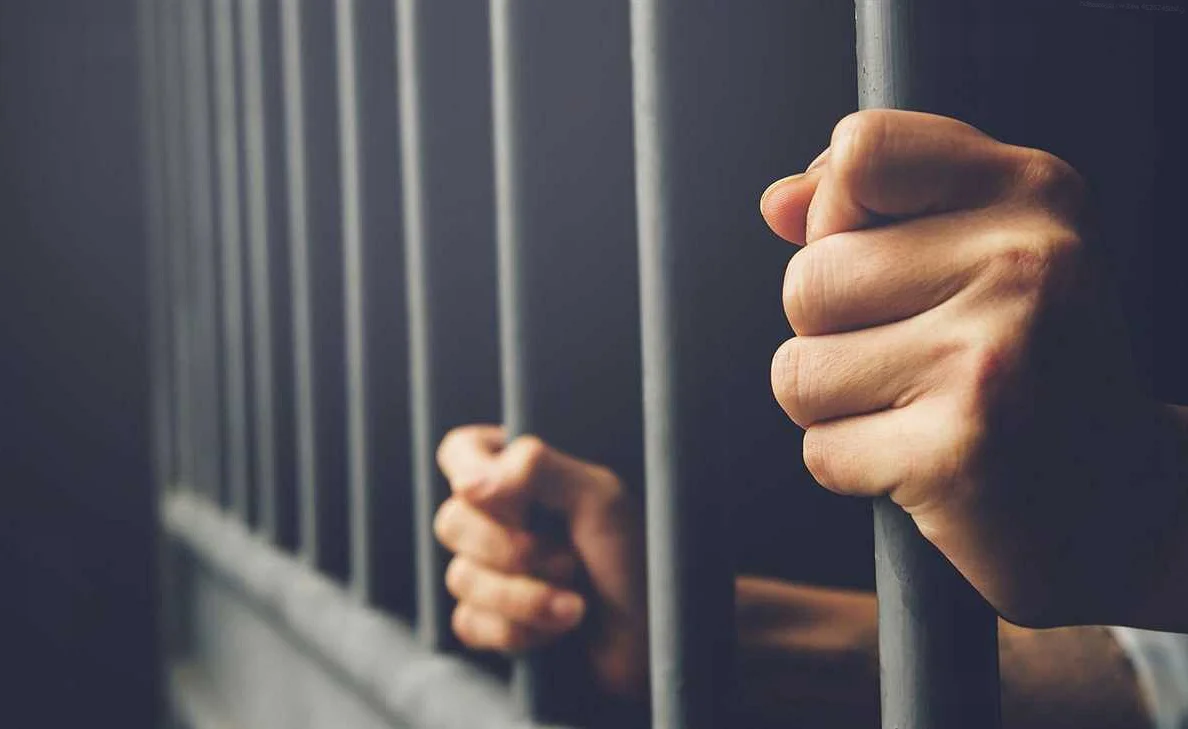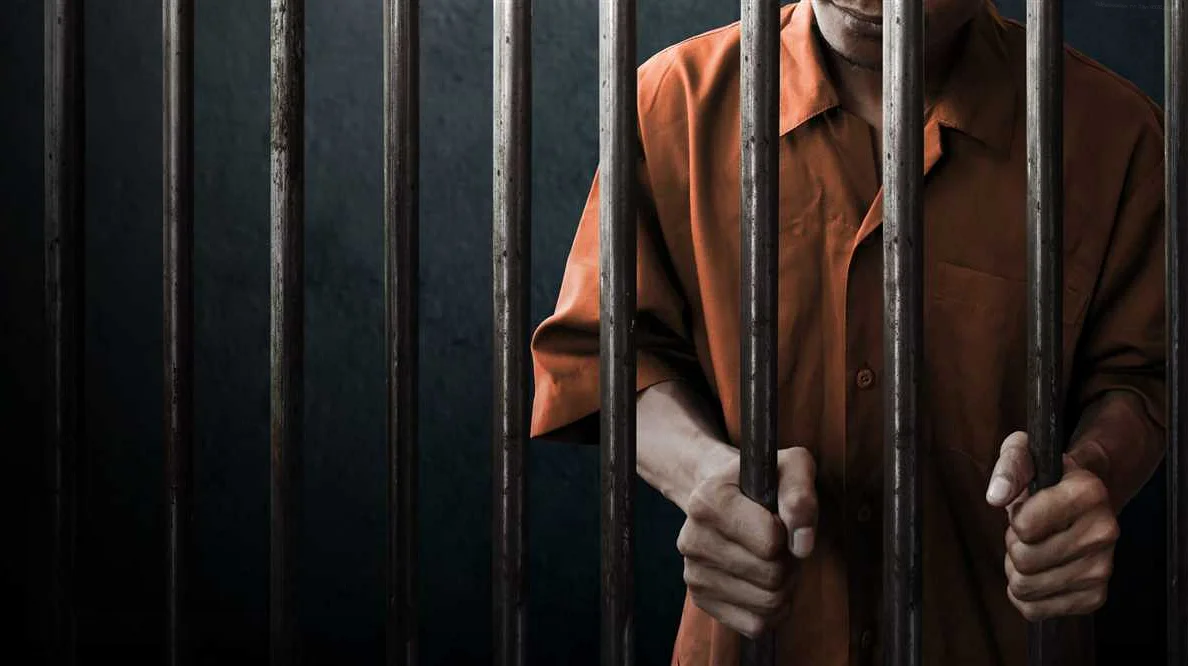Drug Addicts: Choosing Between Prison or Treatment
Содержимое
Drug addicts facing legal consequences must make a difficult choice between prison or seeking treatment. Explore the options and consequences of each decision to better understand the challenges addicts face and the potential for recovery.
Drug addiction is a complex and devastating problem that affects millions of people worldwide. For many, it is a vicious cycle that leads to desperate measures and difficult choices. When faced with the consequences of their drug use, drug addicts often find themselves at a crossroads: should they continue down the destructive path and risk imprisonment, or should they seek treatment and attempt to turn their lives around?
Prison, with its strict rules and regulations, may seem like a harsh but necessary punishment for drug addicts. It is often seen as a way to protect society from the potential harm caused by drug-related crimes. However, critics argue that prison does little to address the root causes of addiction and often perpetuates a cycle of criminal behavior.
On the other hand, treatment offers drug addicts the opportunity to break free from the chains of addiction and rebuild their lives. It provides them with the tools and support they need to overcome their addiction and make positive changes. Treatment can take many forms, including therapy, counseling, detoxification, and rehabilitation programs. While it may not be a quick fix, it offers hope for a brighter future.
Ultimately, the choice between prison and treatment lies with the drug addict. It is a personal decision that depends on individual circumstances, support systems, and readiness for change. However, it is important for society to recognize the potential for rehabilitation and offer alternatives to incarceration. By focusing on treatment rather than punishment, we can provide drug addicts with the help they need to break the cycle of addiction and become productive members of society once again.
The rising epidemic of drug addiction

Drug addiction has become an increasingly prevalent problem in society, leading to a rising epidemic that affects individuals, families, and communities.
With easy access to drugs and the lure of temporary relief or pleasure, more and more people are falling victim to addiction. Substance abuse not only affects one’s physical and mental health but also has far-reaching social and economic consequences.
From opioids to stimulants, the range of addictive substances is wide and varied. Prescription medications, such as opioids, are often the starting point for many individuals who later turn to illicit drugs. Others may experiment with recreational drugs for various reasons, including peer pressure or as a means of escapism.
The consequences of drug addiction are severe and can have a lasting impact on individuals and their loved ones. Health problems, job loss, financial instability, and strained relationships are just a few of the challenges faced by drug addicts.
Communities and governments have recognized the urgency of addressing this crisis and have implemented various initiatives to combat drug addiction. Treatment programs, counseling services, and support groups aim to provide individuals with the help they need to overcome addiction and reclaim their lives.
Education and awareness are also vital components in tackling the drug addiction epidemic. By promoting understanding and providing information about the risks and consequences of drug abuse, society can work towards prevention and early intervention strategies.
It is crucial for individuals struggling with addiction to realize that help is available and recovery is possible. By choosing treatment over incarceration, drug addicts can take the first step towards rebuilding their lives and breaking free from the cycle of addiction.
The consequences of drug addiction

Drug addiction can have severe consequences that impact all aspects of a person’s life. Physically, drug addiction can lead to deteriorating health, organ damage, and even death. The body becomes dependent on the drug, leading to withdrawal symptoms when the drug is not consumed.
Mentally, drug addiction can cause cognitive impairment, memory loss, and mental health disorders such as depression and anxiety. It can also lead to poor decision-making and impaired judgment, increasing the risk of engaging in dangerous behaviors.
Emotionally, drug addiction can strain relationships and lead to isolation and alienation from loved ones. It can result in feelings of guilt, shame, and low self-esteem. The constant need to satisfy the addiction can overshadow other priorities and goals in life.
Socially, drug addiction can lead to legal problems, including arrests and incarceration. This can have long-term consequences, making it difficult to find employment and housing. It can also perpetuate a cycle of addiction and criminal behavior, further worsening the individual’s situation.
Economically, drug addiction can lead to financial instability and poverty. The high cost of drugs, coupled with the inability to work or maintain employment, can lead to a downward spiral of debt and dependence on others for financial support.
Overall, drug addiction can have devastating consequences on an individual’s physical health, mental well-being, relationships, legal status, and financial stability. Without proper intervention and treatment, the consequences of drug addiction can be severe and long-lasting.
The role of prison in dealing with drug addicts

Prison plays a significant role in dealing with drug addicts as it provides a controlled environment where individuals can be temporarily removed from the influences and triggers that contribute to their addiction. While incarceration alone is not a sufficient solution to address the underlying issues of addiction, it can be a starting point for individuals to begin their journey towards recovery.
One of the primary goals of prison when it comes to drug addicts is to ensure public safety by removing individuals who may pose a threat to themselves or others due to their drug use. By incarcerating drug addicts, society can be protected from the potential risks associated with their addiction, such as drug-related crimes or accidents.
In addition to public safety, prison also offers an opportunity for drug addicts to access treatment and support services that can help them overcome their addiction. Many prisons provide drug rehabilitation programs, counseling, and educational resources to help inmates address the root causes of their addiction and develop healthy coping mechanisms. These programs can be instrumental in preparing individuals for their reintegration into society and reducing their likelihood of relapse.
However, it is important to note that prison alone is not a cure for addiction. Drug addicts require comprehensive and ongoing treatment that extends beyond their time behind bars. Without continued support and access to treatment services post-release, individuals are more likely to revert to their previous patterns of drug use and criminal behavior.
Furthermore, it is crucial to address the underlying social and economic factors that contribute to drug addiction. Many drug addicts come from disadvantaged backgrounds where poverty, trauma, and lack of access to education and opportunities play a significant role in their substance abuse. By addressing these systemic issues, society can help prevent future cases of drug addiction and reduce the need for imprisonment as a means of dealing with drug addicts.
In conclusion, while prison can play a role in dealing with drug addicts by providing a controlled environment for temporary separation and access to treatment programs, it should not be the sole solution. A comprehensive approach that includes prevention, early intervention, community support, and ongoing treatment is necessary to effectively address the challenges posed by drug addiction and promote long-term recovery.
The shortcomings of the prison approach

While the prison approach has long been used to address drug addiction, it is not without its shortcomings. One of the main drawbacks is that prisons are not specifically designed to provide the necessary treatment and support for individuals struggling with addiction. The focus in prisons tends to be on punishment and containment rather than rehabilitation.
Another issue is the high rate of relapse among individuals who have undergone drug treatment in prisons. Without proper support and follow-up care, many individuals revert back to drug use soon after their release. This can create a revolving door effect, where individuals cycle in and out of prisons without ever effectively addressing their addiction.
Furthermore, the prison approach often fails to address the root causes of addiction. Many individuals turn to drugs as a means of coping with trauma, mental illness, or other underlying issues. Simply incarcerating them without addressing these underlying issues does little to break the cycle of addiction.
Additionally, the prison system is expensive. A significant amount of taxpayer money is spent on incarcerating individuals, with little evidence to show that this approach is effective in reducing drug addiction rates or decreasing drug-related crimes.
Finally, the prison approach can stigmatize individuals with addiction, further marginalizing them from society. Rather than treating addiction as a health issue, it is often seen as a moral failing, leading to increased social stigma and barriers to reintegration into society.
In light of these shortcomings, there is a growing recognition that a more comprehensive and compassionate approach is needed to address drug addiction effectively. This approach should prioritize treatment and rehabilitation over punishment and incarceration, providing individuals with the support and resources they need to overcome addiction and rebuild their lives.